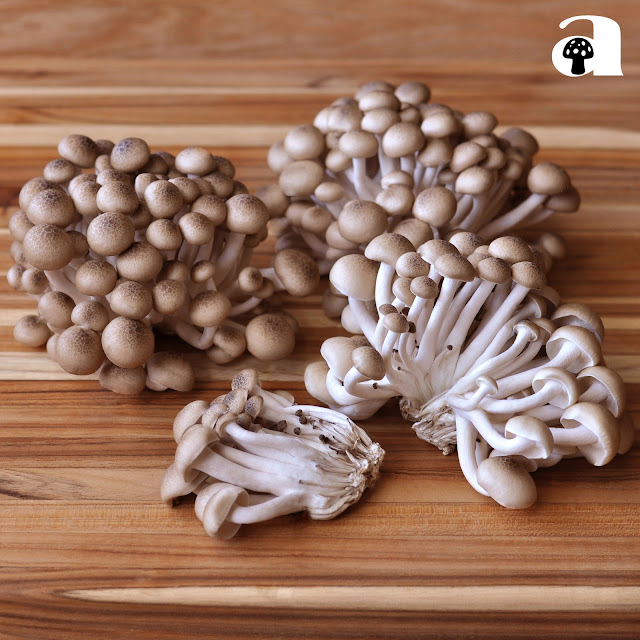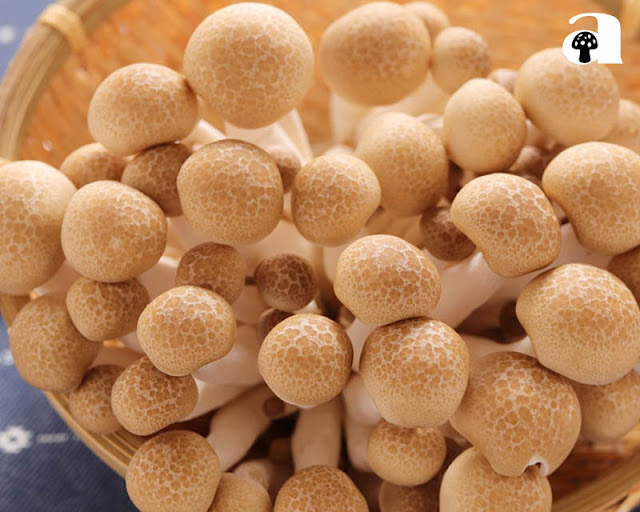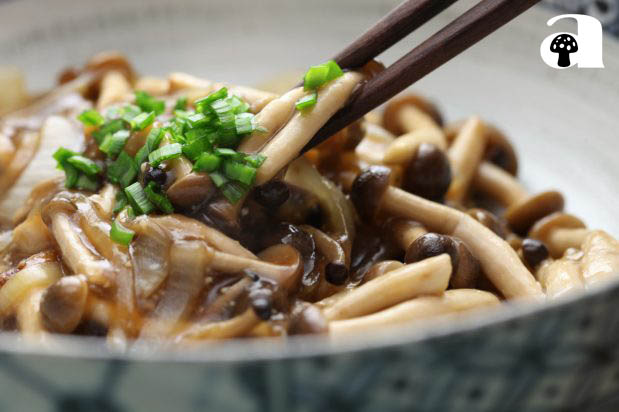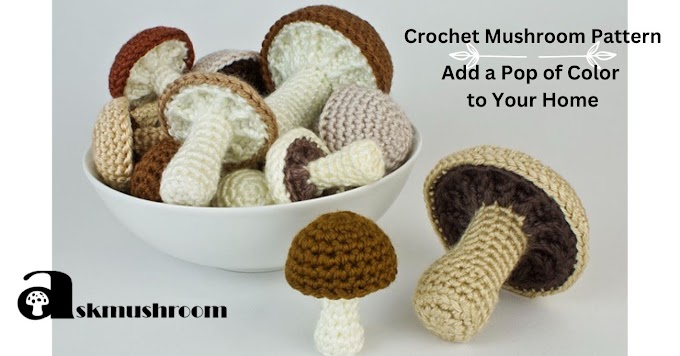Shimeji mushrooms offer a nutritional punch with their small, delicate mushrooms packed full of essential vitamins and earthy taste that pairs perfectly with various dishes. We will explore their health benefits as well as provide tips for including them into meals.
What are Shimeji Mushrooms?
Shimeji mushrooms are a type of mushroom commonly used in Japanese cuisine. With their delicate, slightly nutty flavor and crisp texture, shimeji are popular ingredients in stir fries, soups and salads alike. Varieties available include white, brown and beech varieties which can either be purchased fresh or dried.
History and Origin of Shimeji Mushrooms
Shimeji mushrooms have become a beloved component of Japanese and Korean cuisines for hundreds of years, and today can be found all across East Asia as well as North America and Australia.
Shimeji Mushrooms Are Packed With Nutrition and Health Benefits
Shimeji mushrooms are an ideal combination of low calories and nutritional density, making them a healthy addition to any diet. Rich in B vitamins (thiamine, riboflavin and niacin), essential for energy production and metabolism, they also contain important minerals such as copper, zinc and selenium which support immune function as well as overall wellbeing.
Shimeji mushrooms offer more than nutritional benefits; they're packed with bioactive compounds such as polysaccharides, terpenoids and flavonoids that have anti-inflammatory, antioxidant and immune boosting effects - making shimeji an excellent way to support health and prevent chronic diseases.
Health Benefits of Shimeji Mushrooms
Shimeji Mushrooms Enhance Your Immunity: Shimeji mushrooms contain beta-glucans, an essential source of carbs which have been proven to stimulate immunity by activating immune cells that fight infections and diseases. By supplementing with beta-glucans regularly, Shimeji mushrooms can provide a substantial immune system boost and help you fight infections more easily.
Shimeji mushrooms are packed with antioxidants - compounds that protect cells from being damaged by free radicals - and have been linked with lower risks of chronic illnesses like heart disease, cancer and Alzheimer's.
Shimeji mushrooms contain dietary fiber that is known to help keep digestion running smoothly, including helping regulate bowel movements, prevent constipation and promote the growth of beneficial bacteria in your digestive system.
Shimeji mushrooms are an ideal low-cal food option, providing people trying to lose weight or maintain healthy weight with an opportunity for success. One cup of these mushrooms only contains approximately 30 calories!
Shimeji Mushrooms Are Packed With Vitamin and Mineral Supplements: Shimeji mushrooms provide an abundant supply of vitamins and minerals, such as B2, D3 and potassium. B2 helps your body produce energy from food while D3 promotes bone health; potassium contributes to maintaining proper blood pressure control and heart function.
How to Add Shimeji Mushrooms into Your Meals
Shimeji mushrooms are an extremely versatile ingredient, suitable for use in many different dishes. From sauteeing and roasting them to stir frying and adding them into soups and stews - using these delicate but fast-cooking mushrooms is important! When cooking with shimeji mushrooms remember that they should only be added near the end of cooking for maximum results.
Here are a few easy recipe ideas for cooking with Shimeji mushrooms:
Saute Shimeji mushrooms in garlic and butter and enjoy as a tasty side dish. Incorporate them into soups and stews to increase both their flavor and nutrition content, or roast them along with root vegetables for an irresistibly tasty side dish!
Stir-Fries: Shimeji mushrooms make an excellent addition to stir-fries, thanks to their crisp texture and delicate flavor, as it works well with other vegetables and proteins such as broccoli, carrots, and chicken. Add them for an unforgettable meal!
Soups: Shimeji mushrooms are often featured in Japanese soup recipes like miso soup and udon soup, adding an extra dose of flavor and nutrition. Try incorporating them into your favorite soup recipe for maximum enjoyment and nutrition!
Salads: Shimeji mushrooms add crunch and earthy flavor to salads for an earthy crunch and delicious crunchiness. Try mixing them into one with spinach, goat cheese and dried cranberries.
Pros and Cons of Shimeji Mushrooms:
Pros:
Shimeji mushrooms are low in calories but high in essential vitamins and minerals such as B vitamins, copper, zinc, and selenium.
Shimeji mushrooms are a versatile ingredient that can be used in numerous dishes such as stir fries, soups and stews.
Potential Health Benefits of Shimeji Mushrooms: Shimeji mushrooms contain bioactive compounds with proven anti-inflammatory, antioxidant and immune-enhancing effects.
Delicate Flavor: Shimeji mushrooms boast a delicate, yet subtle flavor that pairs perfectly with many ingredients and cuisines.
Shimeji mushrooms can easily be found at specialty grocery stores and Asian markets as well as online.
Cons:
Shimeji mushrooms can cause allergic reactions in some individuals, leading to symptoms like itching, swelling and difficulty breathing.
Shimeji mushrooms may be more expensive than other types of mushrooms, which makes them less accessible for some individuals.
Shimeji mushrooms have a relatively short shelf life and can easily go bad when stored improperly, leading to rapid spoilage.
Shimeji mushrooms possess a delicate texture and may turn mushy when overcooked, leading to potential disappointment for chefs and home chefs.
Shimeji mushrooms may not be appropriate in all dishes: While versatile, shimeji mushrooms may not fit seamlessly with all cuisines and may overshadow other flavors if used incorrectly.
Shimeji mushrooms provide both culinary and health benefits; however, as with any food item, they may not be right for everyone. Before including these mushrooms in your diet plan, be sure to speak to a healthcare provider or dietitian first to see if they're suitable.
FAQs
Q: Can Shimeji mushrooms be eaten raw?
A: Although raw shimeji mushrooms can be consumed, cooking will enhance both their flavor and texture.
Q: Where can I purchase Shimeji mushrooms?
A: Shimeji mushrooms can be purchased in most Asian grocery stores and some specialty food stores as well as online from various retailers.
Q: Where should I store my shimeji mushrooms?
A: Shimeji mushrooms should be stored in a cool and dry location - fresh varieties can be kept in the refrigerator for up to one week while dried ones can last several months in an airtight container.
Q: Can Shimeji Mushrooms Be Frozen?
A: Absolutely. Simply wash and trim them prior to storing in an airtight freezer-safe container or bag for up to six months of frozen storage.
Q: How do shimeji mushrooms taste?
A: Shimeji mushrooms boast an earthy, mildly nutty taste that makes for an excellent introduction to mushrooms or someone looking for an enjoyable mushroom taste experience. Since shimeji varieties tend to have milder aromas and flavors than some other varieties, these could make great snacks for people new to mushrooms or those who do not prefer overly bold mushroomy flavors.
Q: Can Shimeji mushrooms be used in vegan and vegetarian recipes?
A: Shimeji mushrooms make an excellent protein replacement in stir fries or added as flavor enhancers in soups and stews to give your dishes an added nutritional and flavor boost.
Q: Could there be any potential health risks associated with eating Shimeji mushrooms?
A: While Shimeji mushrooms are generally safe to consume, some individuals may experience allergic reactions due to them. Common signs include itching, swelling and difficulty breathing. If this is your first time trying them out, start slowly by sampling a small amount before increasing to full amounts and monitoring how your body responds.
Q: How can I prepare Shimeji mushrooms for cooking?
A: To prepare Shimeji mushrooms for use in your culinary endeavors, simply trim off the bottoms of their stems and separate into clusters before placing directly into dishes such as stir fries, soups or salads or sauteeing in some oil or butter until tender.
Q: Could Shimeji mushrooms be substituted in place of other varieties for use in recipes? A: Yes.
A: Shimeji mushrooms can certainly be used in recipes as an alternative to other mushroom varieties, but remember their flavor and texture may differ slightly, so any seasoning or cooking times must be adjusted accordingly.
Shimeji mushrooms are a delicious and nutritious ingredient that can easily be added into various dishes. Not only are they delicious and convenient, but their health benefits can help strengthen immunity, support digestive health and promote overall wellbeing - so why not include some in your next meal and experience their many advantages for yourself?
Shimeji mushrooms have long been recognized for their culinary uses, as well as for potential medicinal properties. Studies have revealed that they could potentially contain anti-cancer properties which help inhibit cancer cell growth and spread. Other research indicates they could possibly lower blood sugar levels while improving insulin sensitivity - making shimeji an ideal food to prevent and manage type 2 diabetes.
When purchasing shimeji mushrooms, look for ones with firm texture and an earthy aroma. You can find these mushrooms at specialty grocery stores and Asian markets or online. If fresh versions cannot be found locally or online, dried or canned options may also be available.
Shimeji mushrooms are an indispensable culinary and health ingredient that offer numerous culinary and health advantages. No matter your preferred cuisine style - be it Asian cuisine, Western, or experimental cooking styles - Shimeji mushrooms should definitely make the list of ingredients worth trying when shopping or browsing an online marketplace.
So next time you visit the grocery store or an online marketplace be sure to pick up a pack of Shimeji mushrooms and get cooking!













.jpg)





